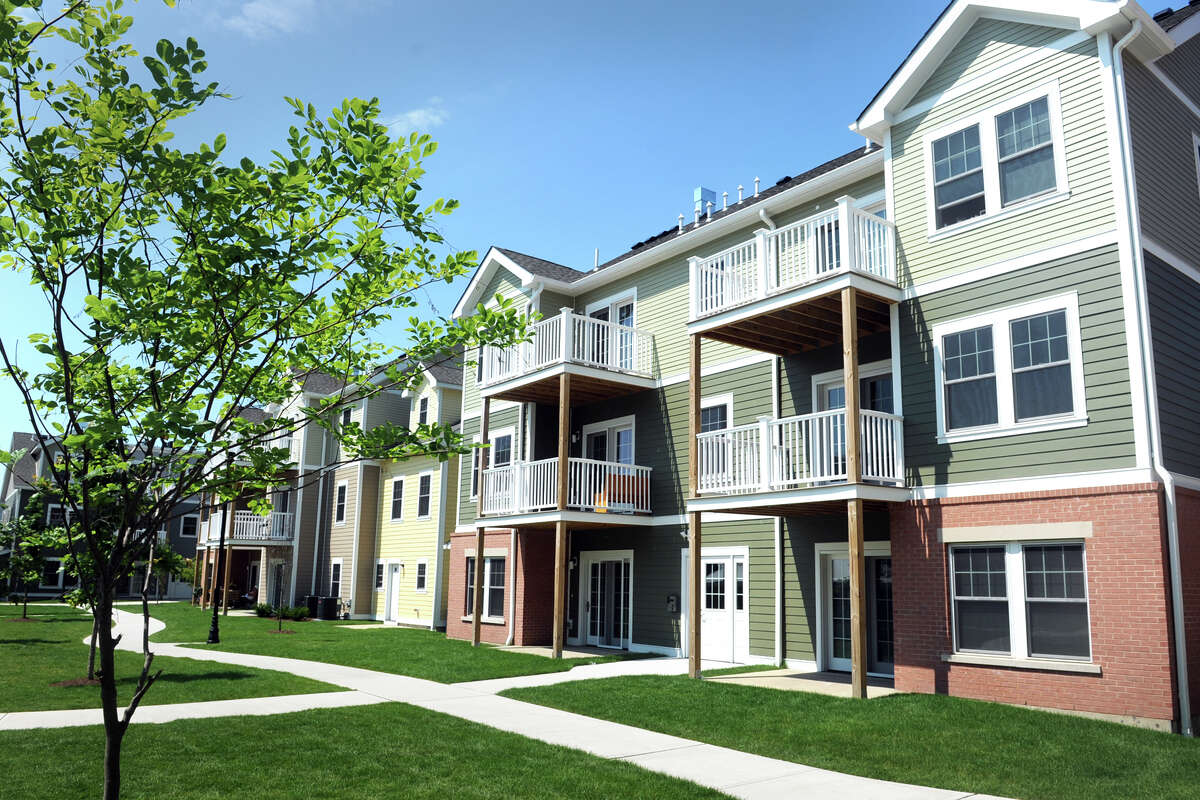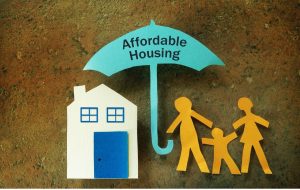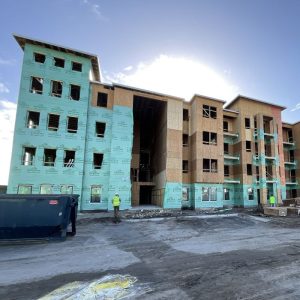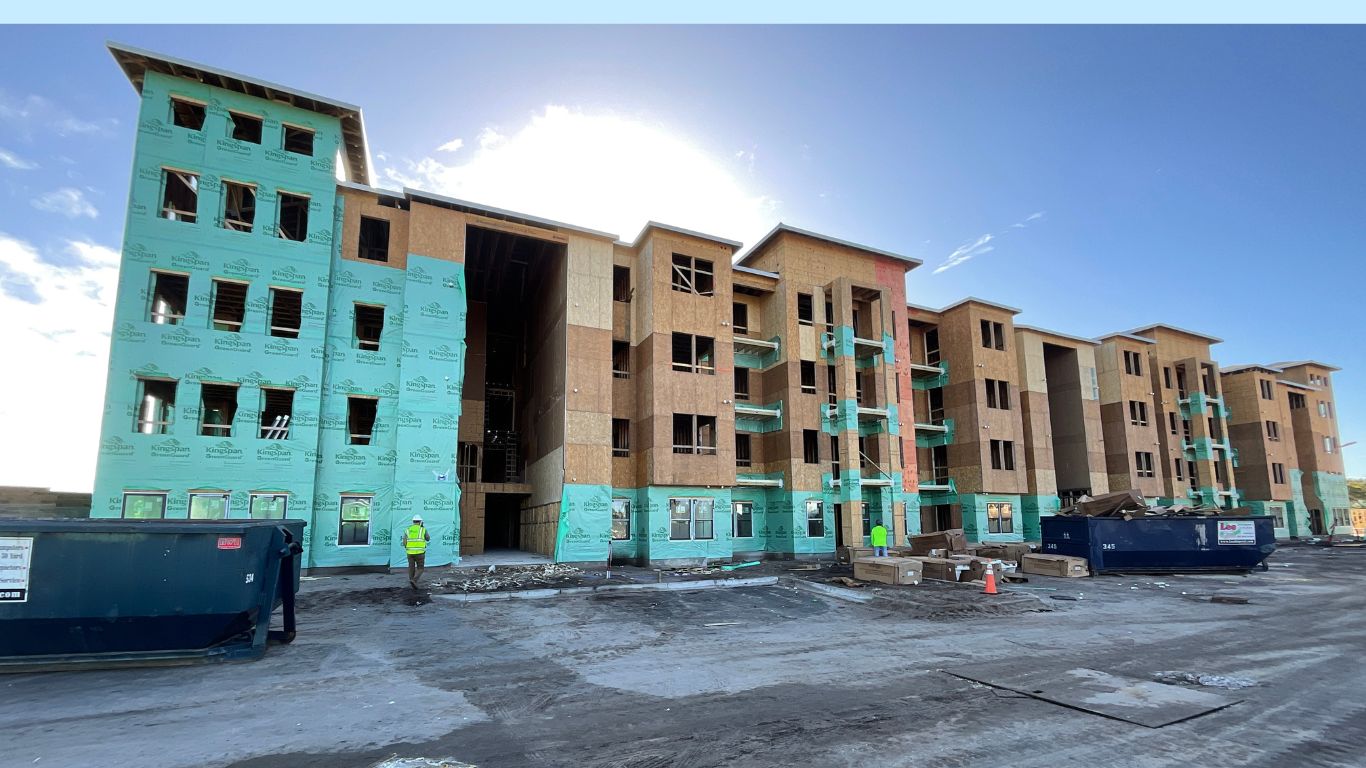Community Impact: Affordable Housing

At Hillmann, we’re passionate about affordable housing initiatives. Affordable housing helps create stronger neighborhoods where individuals and families can thrive and contribute to the overall well-being of the community. Housing is a basic human need, and affordable housing ensures that everyone has access to a safe and secure place to live. Without it, many individuals and families may become homeless or have to choose between paying rent or other basic needs such as food or medications. It can also stimulate local economies by creating jobs in construction, property management, and other related industries. By ensuring that people of all income levels can access affordable housing, communities can become more inclusive, vibrant, and resilient.
Strong Values Build Stronger Communities
Our work is purpose-driven and guided by our collective values. Building stronger communities creates a sense of unity, fosters resilience, and enhances the well-being of individuals. It is a collaborative effort that requires active participation, empathy, and a shared vision for a better future. At Hillmann, we strive to make a better future for all the communities we touch.
Contact us to learn more about partnering with Hillmann on your next affordable housing project.
Affordable Housing Provides Numerous Benefits to Communities
 Social Cohesion: It promotes diversity and inclusivity within communities, allowing people from different backgrounds and income levels to live together. This fosters social cohesion, strengthens community bonds, and reduces social isolation.
Social Cohesion: It promotes diversity and inclusivity within communities, allowing people from different backgrounds and income levels to live together. This fosters social cohesion, strengthens community bonds, and reduces social isolation.- Economic Stability: It ensures that people can live near their workplaces, reducing commuting costs and time. This stability allows individuals to establish roots in the community, contribute to local economies, and support small businesses.
- Education and Child Development: Stable housing has a positive impact on children’s education and overall development. Affordable housing helps families provide a stable environment for their children, enabling them to attend local schools consistently and participate in extracurricular activities.
- Health and Well-being: Access to affordable housing has a direct impact on health outcomes. Stable housing reduces stress, improves mental health, and decreases the likelihood of chronic illnesses associated with inadequate or unstable living conditions.
- Community Revitalization: It can revitalize neighborhoods and communities that have experienced disinvestment or decline. By providing affordable options, these initiatives attract new residents, support local businesses, and enhance community infrastructure.
- Reduced Crime Rates: It can contribute to lower crime rates by fostering a sense of ownership and stability among residents. Communities with stable housing options tend to have lower rates of crime and vandalism.
- Environmental Sustainability: Concentrating affordable housing near urban centers and public transportation reduces reliance on cars, decreases traffic congestion, and lowers carbon emissions. It promotes sustainable development practices and supports the creation of walkable and bike-friendly communities.
Affordable Housing and the Housing Market
 The impact of affordable housing on the market can vary depending on specific local factors, such as the supply and demand dynamics, the overall economic conditions, and the design and implementation of the programs. Effective planning and coordination between public and private stakeholders is crucial to ensure that initiatives align with market needs and contribute to the overall health and stability of the housing market. Here are some ways in which affordable housing can benefit the market:
The impact of affordable housing on the market can vary depending on specific local factors, such as the supply and demand dynamics, the overall economic conditions, and the design and implementation of the programs. Effective planning and coordination between public and private stakeholders is crucial to ensure that initiatives align with market needs and contribute to the overall health and stability of the housing market. Here are some ways in which affordable housing can benefit the market:
- Increased Housing Supply: It often involves the construction or renovation of housing units specifically designed for low- and moderate-income individuals and families. This increases the overall housing supply, which can help alleviate housing shortages and reduce the pressure on housing prices.
- Demand Stimulation: Affordable housing programs create opportunities for individuals who might not otherwise be able to afford housing in the market. This stimulates demand and expands the pool of potential homebuyers or renters, supporting a more active and balanced housing market.
- Neighborhood Stabilization: By bringing in new residents and attracting investments, it can revitalize communities and enhance property values in the surrounding area.
- Workforce Stability: It ensures that individuals with lower incomes, including essential workers, can live in proximity to their workplaces. This promotes workforce stability, reduces commuting times, and improves overall productivity.
- Economic Multiplier Effect: The development of affordable housing projects creates jobs in various sectors, including construction, architecture, and property management. These jobs generate income, which circulates through the local economy, supporting businesses and contributing to economic growth.
- Financial Inclusion: Affordable housing programs often provide opportunities for individuals and families to build equity and establish a foundation for financial stability. This can promote economic empowerment and create a pathway towards homeownership.
Contact us to learn more about partnering with Hillmann on your next affordable housing project.






